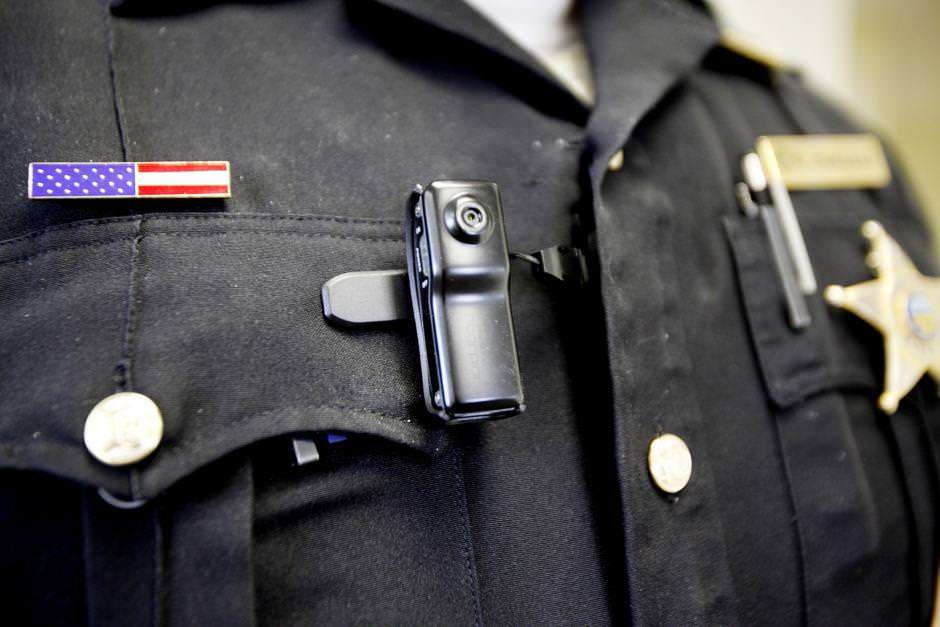Police Suddenly Care About Citizen Privacy When Body Cameras Enter the Picture
Missouri legislator wants to keep police recordings secret.

Nearly everybody thinks they know what happened between Ferguson, Missouri, Police Officer Darren Wilson and Michael Brown on that fateful day in 2014, but the fatal shooting of Brown was not captured on film. The lack of documentation has helped the nationwide push for more cameras on police and on their cars. Studies have shown such cameras both reduce incidences of use of force by police officers as well as complaints of misconduct by police officers.
Bravely standing against this new movement is Republican Missouri State Sen. Doug Libla. In the very state where Brown was shot and days of angry clashes between citizens and police occurred, he has introduced Senate Bill 331. SB 331 does two awful things:
- Declares that all footage recorded by police or police vehicles is not a public record and may not be released except via court order.
- Prohibits the state from requiring officers to wear body cameras or attach cameras to their vehicles or from mandating law enforcement agencies provide such cameras.
According to the president of the Northwest Missouri Regional Fraternal Order of Police, it's all about citizen privacy. Here's what Michael Harden told the St. Joseph News-Press:
"If we respond to and are speaking to a victim of domestic violence or rape or even just something simple like a simple stealing call, we don't want that type of footage to be obtained by citizens, any citizen that decides they want it," Mr. Hardin said. "This legislation would stop a lot of that and protect the rights of citizens throughout Missouri."
How sarcastic a response is needed here when evaluating the sincerity of police's concerns about the privacy of its citizenry? Should I bring up the many ways police attempt to bypass having to get a search warrant to search a person or said person's property? Stop and frisk? Drug-sniffing dogs? DUI checkpoints? License plate readers? StingRay cellphone tracking? How many Supreme Court decisions are there directly connected to police having no concern about citizen privacy anyway?
Nobody believes Hardin, or nobody should believe Hardin, particularly since the second part of the legislation has nothing to do with protecting citizens and everything to do with forbidding the state from requiring police cameras. Legislation could have set up an avenue for citizens who do want to protect their privacy to block the public release of police video. But that's not what is happening here. This law would require anybody who wants access to any police video at all to go to court to demand its release, which would probably be expensive, require a lawyer, reverse the presumption of government transparency, and require citizens and media to convince a judge that the public has a right to see what police have done.
Readers may recall the failed efforts by Connecticut officials to seal the 911 records from the Newtown shootings through a variety of arguments Jacob Sullum once dismissed as "disingenuous" and a judge said "borders on the frivolous." Those actions dragged out the release of the information for a year. Imagine having to do that for every single incident where a police officer is accused of misconduct during interactions with a citizen.
Here's Reason TV showing how much the police in New Mexico care about citizens' privacy:


Show Comments (23)